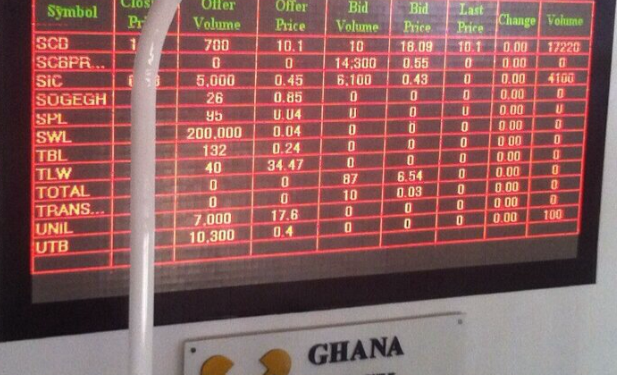The Ghana Stock Exchange (GSE) has posted record profits for two consecutive years, despite local and global challenges taking a toll on listed companies.
The Exchange bettered its 2020 surplus by 32.7 percent, from GH¢23.5million to GH¢31.13million in the past year; making it the highest profit in the Accra bourse’s 31-year history.
The upturn saw the GSE’s revenue hit GH¢52.36million in the period under review, a 33.34 percent improvement over the GH¢39.3million recorded in 2020.
This came in a year when the equities market appreciated by 43.66 percent; the highest in more than a decade. However, it was the Ghana Fixed Income Market (GFIM) – which had its best performance since its inception in 2015 – that was most responsible for the growth in this segment.
A perusal of the data – which were made available when the GSE held its 32nd Annual General Meeting (AGM) – showed that the bond market accounted for 89.3 percent of revenue, contributing GH¢46.75million.
Revenue from equities dropped by 11.76 percent to GH¢5.48million, compared to GH¢6.21million in the previous year.
A further breakdown of the revenue figures show that membership fees amounted to GH¢731,000 (1.4 percent); listing fees, GH¢17.74million (33.9 percent); application fees, GH¢8million (15.3 percent); commission on trade, GH¢25.75million (49.2 percent); course and seminar fees, GH¢1,200; and sale of data and Publications, GH¢136,775 (0.3 percent).
Also, the GSE’s accumulated fund amounted to GH¢107.63million, with its Reserve Fund Investment growing by 58 percent to GH¢32.38million.
Its Ghana Alternative Market (GAX) Fund Investment – which was set up in 2014 by the Exchange in partnership with the Venture Capital Trust Fund (VCTF) to support Small and Medium Enterprises (SMEs) as a listing support system – stood at GH¢1.4million. The Exchange’s contribution at end of the period accounted for 62 percent and VCTF’s 38 percent.
Demutualisation
Among a raft of measures the GSE is undertaking in its quest to evolve from a frontier market to an emerging market in the medium-term is demutualization – the transition of a stock exchange from a mutual association of exchange members operating on a not-for-profit basis to a limited liability company operating for profit and accountable to shareholders.
Chairperson of the GSE’s Board, Abena Osei-Poku, is optimistic that the process will be concluded in the near-term as progress continues on all fronts.
“The GSE’s demutualization is progressing steadily and stakeholder discussions have been held with Licenced Dealing Members (LDMs), Associate Members, GFIM members and the Securities and Exchange Commission. Others such as the Bank of Ghana and Ministry of Finance will also be consulted,” she said.
Mrs. Osei-Poku added that an Extraordinary General Meeting (EGM) will be organized immediately after relevant documents are finalized and approval is granted by members.
This sentiment was similarly expressed by the bourse’s Managing Director, Ekow Afedzie, who explained that demutualization will not only drive efficiency in the GSE’s operations but also in listed companies.
“We will see increased efficiency in running the Exchange, and that will help in bringing more companies onboard.”




